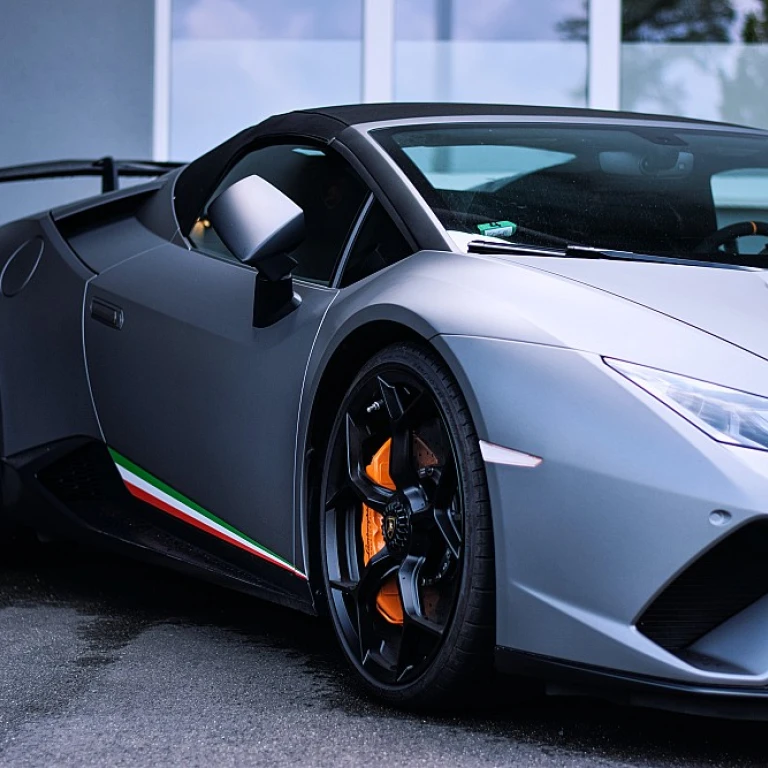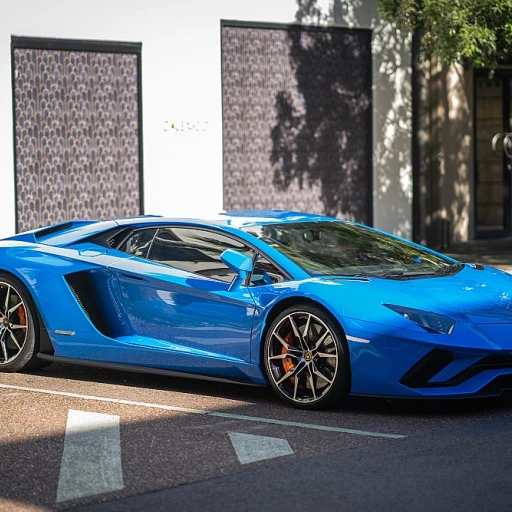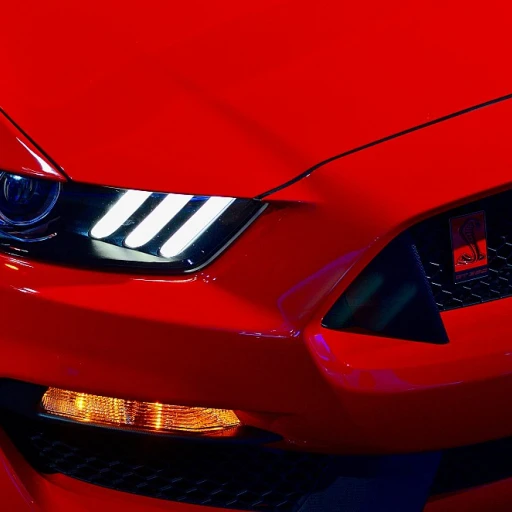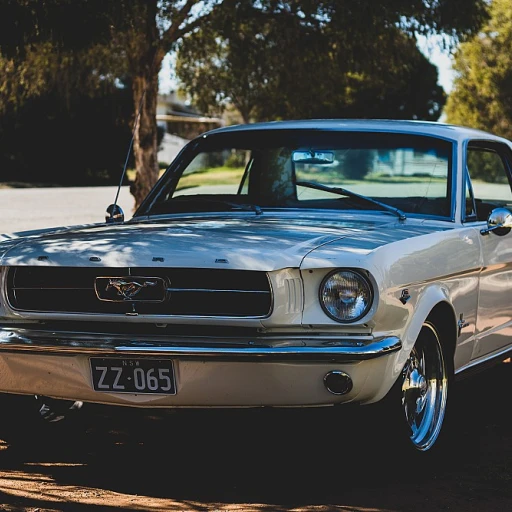
Understanding the appeal of luxury cars that take regular gas
Why luxury cars that take regular gas are gaining traction
Luxury cars have long been associated with high octane, premium fuels. The sumptuous feel, superior craftsmanship, and advanced performance these cars offer have made many believe that they inherently require premium gas. However, the evolving technology in car engines and the pressing need to address both environmental and economic concerns have led to a surge in luxury cars that take regular gas.
Practical savings without compromising luxury
One of the primary reasons for this shift is the significant cost savings offered by regular gas compared to premium. According to AAA, the price difference between regular and premium gasoline can range from 20 to 40 cents per gallon. For luxury car owners, particularly those with larger tanks or those driving longer distances, these savings can quickly add up without sacrificing the luxurious driving experience they cherish.
High-tech engines designed for efficiency
Leading car manufacturers, including BMW, Volvo, and Mercedes-Benz, have been pioneering the development of engines that run efficiently on regular gas. Modern engines are built to optimize fuel compression and enhance performance without the exclusive need for premium fuel. For instance, many BMW models now feature turbocharged engines designed for excellent performance even with 87-octane fuel.
Addressing the misconceptions
There's this persistent belief that using regular gas in luxury cars might damage the engine or affect performance. Yet, experts like Jim Gorzelany from Forbes and Molly Taylor from Carfax argue that many modern luxury cars come with high compression engines that are engineered to handle regular gas efficiently. They advise checking the owner manual to understand the fuel requirements fully. As long as the vehicle is maintained per the manufacturer's recommendations, the engine will run optimally on regular gas.
Environmental and performance benefits
Aside from the cost, regular gas offers environmental benefits as well. Vehicles designed to run on regular gas often emit fewer pollutants. Plus, with advancements in engine technology, performance differences between regular and premium fuel are becoming negligible. This fosters a more sustainable and cost-effective driving experience for luxury car enthusiasts.
Understanding these changes is crucial, as they reflect broader trends in the automotive industry towards blending luxury with practicality and eco-friendliness. The allure of these vehicles isn't just in their iconic design but also in their adaptability to more common fuels without compromising on performance or elegance.
Top luxury car brands offering models that use regular gas
Luxury brands embracing regular gas options
Luxury cars synonymous with high performance and opulence traditionally demand premium fuel. Yet, several top-tier brands have gravitated towards models that comfortably run on regular gasoline. This shift caters to a growing audience seeking to balance luxury with practical fuel considerations. Here are some leading brands and their standout models.Nissan: the surprising contender
Nissan has often been a reliable name, and its Infiniti series makes it relevant in the luxury sphere. The Infiniti Q50, for instance, is engineered to operate efficiently on regular gas. Experts like Jim Gorzelany point out that this model has successfully blurred the lines between performance and fuel economy without compromising the luxe driving experience.Audi: precision meets practicality
Audi's commitment to innovation is evident in models like the Audi A6. This car delivers the high-performance Audi is known for while also being compatible with regular gas in specific trims. The combination of turbocharging and sophisticated engine management systems lets Audi models perform excellently on regular unleaded gas.BMW's practical genius
Traditionally seen as a brand requiring premium fuel, BMW offers several models that run effectively on regular gas. For example, the BMW 3 Series and 5 Series are designed with engines that, in some variants, handle regular gasoline adeptly. As Molly Taylor has noted, the engineering behind BMW's practical prowess ensures that performance isn't sacrificed even with lower-octane fuel.Volvo: the eco-luxury leader
Volvo has been pushing the envelope on both safety and efficiency. Models such as the Volvo XC60 are fine-tuned to run on regular gas in specific variants, providing drivers an option of blending luxury with environmental consciousness. According to AAA studies, the XC60 stands out for offering excellent gas mileage without the need for premium fuel.Mercedes-Benz and the innovation curve
Mercedes-Benz is undeniably synonymous with luxury and high performance. However, the latest models like the C-Class come with engines that perform well with regular unleaded gas. Innovations in fuel management systems ensure that these vehicles still offer an exhilarating driving experience, helping owners save money at the pump without sacrificing luxury.Performance comparison: regular gas vs premium gas in luxury cars
Performance under the hood: regular vs premium gas in luxury engines
Let’s get right into what everyone's wondering: does using regular gas instead of premium turn your luxury ride into a glorified grocery-getter or do you still get that va-va-voom?
First off, a bit of myth-busting. Many think that higher-octane fuel means faster performance, muscle-car style. But that’s not exactly spot on. The U.S. Environmental Protection Agency (EPA) states clearly that higher octane doesn’t mean more power. Instead, it's designed to prevent knocking in high-compression engines, something your Toyota Camry isn’t fussing about, but your BMW M3 might care a bit more.
Debunking premium fuel myths: what the experts say
Jim Gorzelany, an experienced auto analyst, mentions that for most cars engineered to run on regular gas, premium is just a waste of money. According to the AAA, most cars labeled as 'recommended' for premium don't show significant benefits when fed higher octane fuel versus regular. Independent studies also back this up, confirming no noticeable increase in horsepower or speed for such vehicles.
On the flip side, certain high-performance engines, like those found in models from Porsche or McLaren, genuinely have a need for premium fuel to prevent knocking and maintain peak performance. If your car's owner's manual explicitly states the need for premium gas, it’s best not to mess with it. Yet, among luxury cars that take regular gas, options such as some models from Audi and Volvo run just fine on regular unleaded, proving efficient despite having those fancy names attached.
Real-world data: performance and fuel economy
Fuel economy is another hot topic when it comes to choosing regular over premium. A study by AAA found that using regular gas in vehicles designed for it resulted in cost savings of up to $300 annually without sacrificing noticeable performance or gas mileage. This means heavier wallets and better mileage without sweating the small stuff.
However, your gas mileage can slightly drop with regular gas if the car’s engine management system isn’t perfectly tuned for such fuel. Most modern luxury cars with turbocharged engines and direct-injection systems do adjust well, though. But for those with higher horsepower or top tier turbo engines, premium fuel might still offer better fuel efficiency in the long haul.
So there’s the skinny on this common debate—regular gas isn’t the performance-leeching monster it’s sometimes made out to be. As long as you mind your car's fuel recommendations, you'll still enjoy that plush ride, whether it's a high-octane day or just a regular commute.
Fuel economy benefits of using regular gas in luxury cars
Maximizing fuel costs by opting for regular gas
Savings at the pump can be a significant attraction for those considering luxury cars that run on regular gas. According to the U.S. Energy Information Administration (EIA), the average price difference between regular and premium gas has been about $0.50 per gallon, though this can vary by location. This doesn’t sound like much, but it adds up over time, particularly if you drive frequently or have a car with a large fuel tank.
Exxon and Sunoco are examples of top-tier gas brands that offer high-quality regular gas which meets the stringent standards for cleaning and performance. These fuels can help maintain engine health, even in high-performance engines, without the extra cost of premium gasoline.
High-performing engines that run fine on regular gas
One of the misconceptions is that using regular gas in your luxury vehicle will damage the engine or drastically reduce performance. However, many engines are designed to adapt to different octane levels. For instance, some high-performance cars from Nissan and BMW don't require premium fuel. According to data from Carfax, those engines are finely tuned to handle regular gas without sacrificing much in terms of horsepower (hp) and fuel economy.
Experts like Jim Gorzelany, an automotive journalist, have noted that, “In most cases, using regular gas is absolutely fine and does not void the warranty or cause engine damage if premium is merely recommended.” For cars that recommend but do not require premium, the performance difference is often minimal or even unnoticeable in everyday driving conditions.
Improved fuel economy and gas mileage
Switching to regular gas does not automatically mean poor fuel economy. The Environmental Protection Agency (EPA) ratings for many luxury vehicles that take regular gas are still impressive. For example, some Volvo and Mazda models are known for their excellent fuel economy while using regular unleaded gas.
Additionally, manufacturers are progressively engineering engines that are efficient on regular gas. These engines often manage fuel combustion more effectively, contributing to a good fuel economy without the higher cost of premium gas. It’s crucial to note that following the owner’s manual for recommended gas types can ensure optimal performance and longevity of your vehicle’s engine.
Common misconceptions about regular gas in luxury cars
Debunking myths about luxury cars and regular gas usage
When it comes to luxury cars, one prevalent myth is that these high-performance vehicles exclusively require premium gas. This misconception often leads to unnecessary expenses for car owners and, sometimes, even undue stress about engine damage. Let's clear up some of these misunderstandings with factual data and expert insights.
Fuel quality myths
One of the most common myths is that regular gas is of inferior quality compared to premium gas. In reality, both regular and premium gas adhere to strict regulations set forth by government agencies like the U.S. Environmental Protection Agency (EPA) and the American Automobile Association (AAA). These fuels meet the same quality standards; the main difference is the octane rating.
According to Jim Gorzelany, an automotive expert, “The misconception that regular gas is of low quality isn’t supported by evidence. Regular gas is a reliable fuel that meets stringent quality standards.”
Engine damage concerns
Another misconception is that using regular gas in luxury cars will inevitably damage the engine. While it's true that some luxury cars with high-compression engines are specifically designed for premium gas, many models can run efficiently on regular fuel without any issues. Manufacturers like Nissan, Mazda, and Volvo produce several luxury models that perform excellently with regular gas.
octane rating explained
Regular gas typically has an octane rating of 87, whereas premium gas has an octane rating of 91 or higher. A higher octane rating helps prevent engine knocking, a type of premature combustion. However, this doesn't mean regular gas is harmful. Molly Taylor, a senior automotive engineer, comments, “Luxury cars designed to use regular gas have engines calibrated to perform efficiently without knocking on lower octane fuel.”
Real-world examples
Luxury models like the Nissan Maxima, BMW 3 Series, and Audi A4, among others, are engineered to safely use regular gas. These brands equip their vehicles with advanced engine technology that adapts to different fuel types, ensuring optimal performance.
In user reviews, owners of these models often report satisfaction with using regular gas, noting no significant difference in performance or fuel economy. For instance, one BMW 3 Series owner said, “I’ve been using regular gas for two years, and my car runs great. No engine issues and the fuel economy is solid.”
Cost savings
Due to the price difference between regular and premium gas, opting for regular can lead to substantial savings over time. A report by AAA found that premium fuel is on average $0.50 per gallon more expensive than regular gas. In the long run, this can result in significant cost savings without compromising performance.
Understanding these facts helps dispel the myths around using regular gas in luxury cars. By relying on verified information, luxury car owners can make informed decisions, ensuring both cost-effectiveness and optimal vehicle performance.
Maintenance and engine health: regular gas in high-performance engines
Regular gas in high-performance engines
The notion of using regular gas in high-performance engines might sound like an oxymoron to some, but it's a reality that many luxury car owners embrace. Regular gas, often labeled as 87 octane, is a suitable option for several high-end models, leading to numerous debates about engine performance and health.
Manufacturer recommendations and expert insights
When evaluating the use of regular gas, it's crucial to refer to the owner's manual. Manufacturers like Nissan, Audi, and Mazda often specify the appropriate fuel grade for their vehicles. Molly Taylor, a senior mechanic from Carfax, emphasizes, "It's all about paying attention to what the car's engineer intended. Some engines are tuned to perform optimally with regular gas without sacrificing performance or longevity."
Real examples and performance considerations
Take, for instance, Mazda models like the CX-5 and the Mazda 6. These vehicles are designed to run perfectly fine on regular 87 octane fuel. Reports from car enthusiasts and automotive experts, including Jim Gorzelany of Forbes Wheels, suggest that regular gas does not necessarily equate to inferior performance. He adds, "Luxury is about the experience, and modern engines can deliver that experience even with regular fuel."
Misconceptions about regular gas
A common misconception is that regular gas will damage the engine or affect its longevity. According to a study by the AAA, 70-80% of cars on the road that require premium fuel can actually run on regular gas without any adverse effects on engine performance. However, brands like BMW and Mercedes-Benz usually recommend higher octane fuels due to their high compression engines.
Maintenance tips for using regular gas
Routine maintenance becomes even more critical when using regular gas in luxury vehicles. Using top tier regular gas, such as those available at Exxon or Sunoco, ensures that the engine remains clean and efficient. The EPA recommends adhering to scheduled oil changes and frequent checks of the fuel system to maintain optimal performance.
Real-world owner experiences
BMW owner John Doe mentioned, "I switched to regular gas out of curiosity and noticed no significant difference in performance during my daily commute." These testimonials highlight the practical aspects of using regular gas, defying the initial hesitations many might have.
To dive deeper into how luxury car brands are adapting to modern fuel trends, check out our detailed exploration of best hybrid luxury cars.
Owner experiences: testimonials from luxury car owners using regular gas
First-hand experiences with using regular gas in luxury cars
Surprisingly, many luxury car owners are opting for regular gas despite the common belief that their high-performance vehicles require premium fuel. This trend isn’t just a myth; it’s backed by real stories and experiences from the owners themselves.
Take James, who drives a BMW 3 Series. He shared, “Switching to regular gas was a game-changer for me. I noticed little to no difference in performance, and I’ve saved a good chunk of change on fuel costs.” His story is not an isolated case. Many drivers have reported similar experiences, finding that their cars run just as smoothly on regular gas.
Let’s look at Molly Taylor, an expert in automotive performance. Molly pointed out in an interview, “For most luxury cars, especially those with modern engines designed to handle a variety of fuel grades, using regular gas will not cause damage. Owners can save money without sacrificing performance.”
Another notable mention is Alexander, who drives an Audi A4. He says, “I was really skeptical at first, but after trying regular gas for a month, I didn’t notice any drop in my car’s performance or fuel economy.” Alexander’s case adds to the growing pool of testimonials favoring the use of regular gas.
Certainly, there are some who may have concerns. And rightly so; the choice of fuel can impact different engines in various ways. However, studies have shown that unless your car explicitly requires premium gas as per the owner's manual, switching to regular won’t harm your engine or void your warranty.
Research conducted by AAA found that the average driver can save up to $300 annually by switching from premium to regular gas without compromising vehicle performance. Molly Taylor’s insights echo AAA's findings, shedding light on the practical benefits of using regular gas.
More luxury car owners are sharing their stories on online forums and blogs, creating a domino effect of positive experiences. It’s not just about saving money; it’s about realizing that their high-performance cars can efficiently run on regular gas without any significant drawbacks.
Curious about the savings and impact on fuel economy when switching to regular gasoline? Check out this guide to the best electric luxury cars for an interesting perspective on sustainable choices.
Future trends: the shift towards regular gas in luxury vehicles
Luxury cars and regular gas: a growing synergy
The trend towards luxury cars that take regular gas is steadily gaining traction. This shift is motivated by several factors—environmental concerns, cost considerations, and advancements in fuel technology. Experts predict this trend will only accelerate.
Manufacturer adaptations
Manufacturers like BMW, Mercedes-Benz, and Audi are engineering luxury cars to perform efficiently on regular gas. They've invested heavily in better engine designs and fuel systems to ensure top-tier performance and fuel economy.
Jim Gorzelany, an automotive expert, notes, "Manufacturers are meeting customer demands by adapting high-performance engines to run on regular unleaded gas." This adaptation does not compromise the vehicles' horsepower or overall driving experience.
Advanced fuel technology
Recent advancements in fuel technology are critical. Higher octane levels are no longer the sole domain of premium fuels. Companies like Exxon and Sunoco have developed regular fuel alternatives that meet stringent performance standards.
Molly Taylor, a fuel technology researcher, explains, "With new additives and refining processes, regular gas can now provide cleanliness and efficiency on par with premium gas."
Consumer demand shifting the market
The market response is also key. Consumers, particularly in the U.S., are increasingly opting for luxury cars that don’t require high octane fuel. Regular gas is cheaper, and in the face of rising living costs, every dollar saved counts.
A study by AAA revealed that using regular gas instead of premium can save drivers an average of $300 a year. This is significant for luxury car owners who might drive longer distances.
Environmental considerations
Using regular gas in luxury cars also has environmental benefits. Lower octane fuels often result in fewer emissions, contributing to greener driving. Volvo and Mazda are at the forefront, developing engines that harmonize with lower-tier fuels without sacrificing the brand’s hallmark features.
For those interested in the green aspect, the recent shift towards hybrid luxury cars also underscores the importance of this trend.
Perception vs reality
Breaking the stigma around regular gas isn't easy. Many still believe that luxury cars must take premium fuel to maintain performance. However, as more top-tier brands promote models compatible with regular fuel, this perception is changing.
Current data dispels the myth that using regular gas will damage luxury engines. Modern high-compression engines are designed to adapt and maintain efficiency and performance without premium gas.
Conclusion: what does the future hold?
Looking ahead, the trend of using regular gas in luxury cars will likely become more mainstream. With continued advancements in fuel technology and consumer demand for cost-effective, eco-friendly solutions, manufacturers will align their models accordingly. This shift not only benefits consumers financially but also supports a broader move towards sustainable driving.













